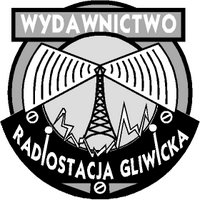
This is a historical red herring much like Bush's weapons of mass destruction, and the gulf of Tonkin. Hitler, and Nazi general Reinhard Heydrich concocted a scheme wherein Polish millitant incite germany's reluctant invasion of Poland. [Damn those warmongering Poles.]
Their ficticious drama goes like this: A Polish commando team shoots their way into a German radio station Radiostacja Gliwicka a.k.a. Radiosender Gleititz in the German border town of Gleiwitz. They then broadcasted a radical call to arms against urging the Poles living in Silesia to strike against Germans.
This is of course utter crap. Most of what we know about the Gleiwitz incident comes from the sworn affidavit of Alfred Naujocks at the Nuremberg Trials. According to this testimony, the incident was organised by Naujocks under orders from Reinhard Heydrich and Heinrich Müller, the chief of the Gestapo.
So what really happened is that on the night of August 31, 1939 a small group of German operatives led by Naujocks seized the Gleiwitz station and broadcast fake the anti-german propaganda. The Germans' goal was to make the attack and broadcast look like the work of anti-German Polish insurgents.
Radiostacja Gliwicka unlike many WWII radio stations, is actually still intact today. From 1945 through 1955 the transmitter served Gleiwitz as a shortwave radio facility brodcasting on the medium-wave band. In 1956 A new medium-wave station went online in nearby Ruda Slaska effectively retiring it. the original tower still stands, today the it carries numerous transmitting antennas for a portable radio service and the closed rural broadcasting service in Gleiwitz.
FACT: At 118 meters in height, the radio tower of the Gleiwitz is the tallest still operating tower made of wood. it's composed entirely of Saxonian larch wood and bronze screws.
In 2005 the Radiostacja Gliwicka transmitter building became a museum. it displays the old radio technology of the transmitter and documents relating to the Gleiwitz incident of september 1st 1939.




No comments:
Post a Comment